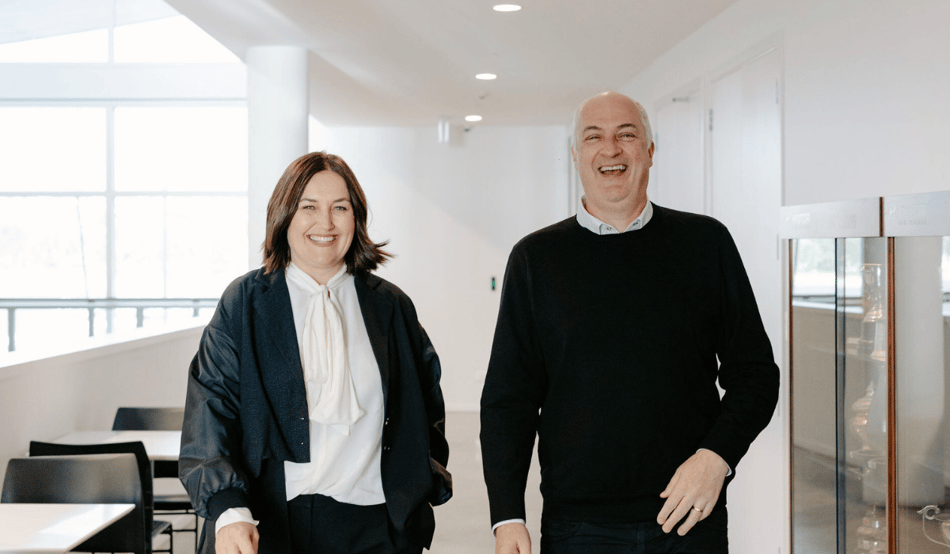.png?width=50&name=Olivia%20Blaylock%20(2).png)

What do our businesses need to thrive, not simply survive, until 2025?
The Government’s $1.2 billion regional infrastructure fund opening to applicants this week should bring a much-needed boost in confidence to business in the regions.
The aim of the fund is welcomed by the business community, with the primary focus being on underpinning stronger regional economies and increasing lagging productivity.
But this fund won’t help the councils that are waiting for cash to be allocated for “business as usual” maintenance.
Central government needs to give local councils guidance as soon as possible on what budgets they have for infrastructure spending, so businesses can get on and make plans around resourcing for the anticipated growth.

Cut building sector red tape
We’re seeing what we hope will be the start of a further reduction of red tape in our building sector.
Legislation removing barriers to overseas building products, announced in the Government’s Q3 40-point plan this week, and the ability to build a second 60 sqm dwelling or “granny flat” without consent are great moves, but we could go further.
Our building consent authority system is far from productive.
Australia is building faster than New Zealand because its regulatory system is set up to be productive and New Zealand’s is not.
One of our Icehouse alumni in the construction industry tells us they deal with 11 or 12 different councils for their work across greater Waikato and surrounding regions.
Those councils all have different timelines for consenting, different requirements for inspection and even different requirements for the builds themselves.
In Queensland, there is one consenting authority for a similar population – we have 67 different authorities in this country.
Driving a successful business takes confidence to make changes, to plan for the year ahead and to identify when to pull in experts for support.
All Blacks coach Scott “Razor” Robertson delivers this message in his new documentary, RAZOR, on Sky TV.
Razor talks about the need to make tough and skilful decisions.
He talks about the importance of a coaching team around you that will challenge you, have great conversations, and help you be better.
The recent 2degrees Shaping Business Market Survey cites cash flow as the number one “what would help us” factor.
Better technology has increased on 2023 results and thriving businesses are significantly more likely to be using technology to improve productivity.
And when it comes to seeing confidence from our small and midsize business leaders, I’m optimistic.
The Icehouse is the country’s leading business growth organisation, and our alumni give us a good snapshot of what’s working and how to make it work better.
In Whangārei, a flooring company is outsourcing quantifying for commercial work to the Philippines.
What might take two weeks to do here in New Zealand, at significant expense, takes two to three days using the offshore skill base and costs a few hundred dollars.
When the team back in the office double-checks the work for accuracy, they are gaining lessons from the external quantifiers.
Owner Sam Colthurst has hired three more staff this year from outside the industry and he’s upskilling them.
They are a young, tech-savvy team that has introduced a new way to pre-cut carpet before it leaves the factory, making installation faster and freeing up time for more installs.
The website now has in-built technology enabling quick quotes online.
The productivity lift is significant, not to mention the better experience it delivers to their customers.
In Tauranga, alumnus Matt Flowerday has introduced new software for the horticulture industry enabling digital crop count data in real-time directly from the orchard, saving time on hand-written work and reducing errors.
Businesses are thinking more about diversification and how to make money in different ways. Take Christchurch-based joinery business MWF Manufacturing.
Owner Gary Altenburg took his My Little Pub business to Fieldays and took enough orders for 12 months of work – and not a farmer amongst them.
Anyone leading a business right now could do worse than to watch the RAZOR documentary and think about new ways to generate confidence in their team and their supply chain, because a connected and forward-thinking attitude is what we need right about now to boost into 2025.
A couple of wins against England couldn’t hurt either.
This opinion piece was originally published here on NZ Herald on 5 July 2024


